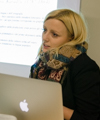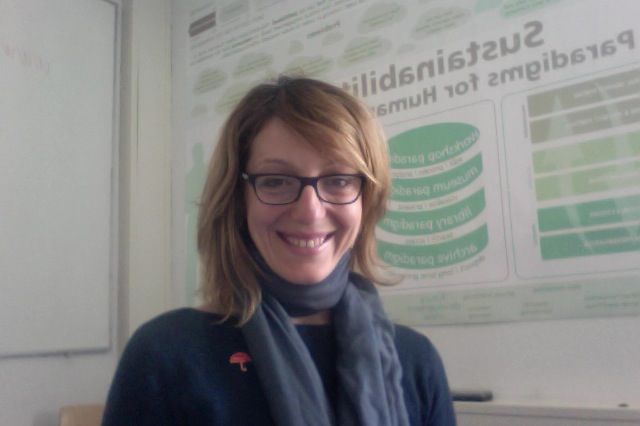Studying at the University of Verona
Here you can find information on the organisational aspects of the Programme, lecture timetables, learning activities and useful contact details for your time at the University, from enrolment to graduation.
Academic calendar
The academic calendar shows the deadlines and scheduled events that are relevant to students, teaching and technical-administrative staff of the University. Public holidays and University closures are also indicated. The academic year normally begins on 1 October each year and ends on 30 September of the following year.
Course calendar
The Academic Calendar sets out the degree programme lecture and exam timetables, as well as the relevant university closure dates..
| Period | From | To |
|---|---|---|
| Semester 1 | Oct 2, 2017 | Jan 20, 2018 |
| Semester 2 | Feb 26, 2018 | Jun 9, 2018 |
| Session | From | To |
|---|---|---|
| Winter session | Jan 22, 2018 | Feb 24, 2018 |
| Summer session | Jun 11, 2018 | Jul 28, 2018 |
| Autumn session | Aug 27, 2018 | Sep 22, 2018 |
| Session | From | To |
|---|---|---|
| LAUREE LINGUE - sessione autunnale a.a. 2016/2017 | Dec 18, 2017 | Dec 21, 2017 |
| LAUREE LINGUE - sessione invernale a.a. 2016/2017 | Mar 23, 2018 | Mar 29, 2018 |
| LAUREE LINGUE - sessione estiva | Jul 16, 2018 | Jul 21, 2018 |
| LAUREE LINGUE - sessione autunnale | Nov 12, 2018 | Nov 17, 2018 |
| LAUREE LINGUE - sessione invernale | Apr 12, 2019 | Apr 18, 2019 |
| Period | From | To |
|---|---|---|
| All Saints Day | Nov 1, 2017 | Nov 1, 2017 |
| Immaculate Conception | Dec 8, 2017 | Dec 8, 2017 |
| Christmas break | Dec 22, 2017 | Jan 7, 2018 |
| Easter break | Mar 30, 2018 | Apr 3, 2018 |
| Liberation Day | Apr 25, 2018 | Apr 25, 2018 |
| Labour Day | May 1, 2018 | May 1, 2018 |
| Patron Saint Day | May 21, 2018 | May 21, 2018 |
| Republic Day | Jun 2, 2018 | Jun 2, 2018 |
| Summer break | Aug 13, 2018 | Aug 18, 2018 |
Exam calendar
Exam dates and rounds are managed by the relevant Foreign Languages and Literatures Teaching and Student Services Unit.
To view all the exam sessions available, please use the Exam dashboard on ESSE3.
If you forgot your login details or have problems logging in, please contact the relevant IT HelpDesk, or check the login details recovery web page.
Academic staff
 alessandro.bigardi@univr.it
alessandro.bigardi@univr.it

Bradas Marija
 marija.bradas@univr.it
marija.bradas@univr.it
 paolamaria.caleffi@univr.it
paolamaria.caleffi@univr.it
 veronica.gobbato@univr.it
veronica.gobbato@univr.it
 tiziana.mancinelli@univr.it
tiziana.mancinelli@univr.it
 silvia.zollo@univr.it
silvia.zollo@univr.it
Study Plan
The Study Plan includes all modules, teaching and learning activities that each student will need to undertake during their time at the University.
Please select your Study Plan based on your enrollment year.
1° Year
| Modules | Credits | TAF | SSD |
|---|
1st foreign language2nd foreign language1st foreign literature2nd foreign literature2° Year activated in the A.Y. 2018/2019
| Modules | Credits | TAF | SSD |
|---|
1st foreign language2nd foreign language1st foreign literature2nd foreign literatureOne course to be chosen among the following3° Year activated in the A.Y. 2019/2020
| Modules | Credits | TAF | SSD |
|---|
1st foreign language2nd foreign languagePhilology of the first or second language| Modules | Credits | TAF | SSD |
|---|
1st foreign language2nd foreign language1st foreign literature2nd foreign literature| Modules | Credits | TAF | SSD |
|---|
1st foreign language2nd foreign language1st foreign literature2nd foreign literatureOne course to be chosen among the following| Modules | Credits | TAF | SSD |
|---|
1st foreign language2nd foreign languagePhilology of the first or second language| Modules | Credits | TAF | SSD |
|---|
Legend | Type of training activity (TTA)
TAF (Type of Educational Activity) All courses and activities are classified into different types of educational activities, indicated by a letter.
Spanish language 3 (2019/2020)
Teaching code
4S002923
Teacher
Coordinator
Credits
9
Also offered in courses:
- Spanish language 3 of the course Bachelor's degree in Foreign Languages and Literatures
Language
Spanish
Scientific Disciplinary Sector (SSD)
L-LIN/07 - LANGUAGE AND TRANSLATION - SPANISH
Period
II semestre (Lingue e letterature straniere) dal Feb 17, 2020 al May 30, 2020.
Learning outcomes
By the end of the course students:
– will be familiar with essential concepts of lexicology and morphology;
– will be have understood the basic mechanisms of word formation in Spanish and will be able to recognize them and to apply them to textual analysis;
– will have approached some example of lexical creativity, coining and semantic evolution in different areas.
Expected Spanish proficiency level is C1 according to the Common European Framework of Reference for Language.
Program
The course will offer an introduction to the fundamental concepts of morphology (the concept of word, lexeme/morpheme, inflectional morpheme/derivational morpheme etc.) and of lexicology, with special attention to the mechanisms of word formation (composition, derivation etc.).
Specifically, the course will analyse current neological trends in Spanish language through examples of innovation and lexical creativity from the following areas: colloquial language, phraseology, literary discourse and the (digital) media.
Lectures will be supported by Powerpoint presentations and by multimedia material; there will also be workshop-style classes with practical activities focusing on the analysis of selected texts relating to the categories presented.
Students from both curricula are expected to study Casado Velarde’s monograph (2017); furthermore, LLS and ED students will have to study the following bibliography:
Montoro del Arco, Esteban (2008): “Relaciones entre Morfología y Fraseología: las formaciones nominales pluriverbales”, en Ramón Almela Pérez & Esteban T. Montoro del Arco (eds.), Neologismo y morfología, Murcia: Universidad de Murcia, pp. pp. 121-146.
| Author | Title | Publishing house | Year | ISBN | Notes |
|---|---|---|---|---|---|
| Casado Velarde, Manuel | La innovación léxica en el español actual (Edizione 2) | Síntesis | 2017 | 978-84-9077-151-8 |
Examination Methods
The exam will be a written test that will ascertain the depth of knowledge acquired on the topics on the syllabus, as well as the correct use of language, the terminological precision, and the ability to connect the information as a network of knowledge.
The exams questions will focus on the syllabus topics covered during the lessons, on the teaching material provided and on the course bibliography; students may sit the exam only after they have obtained a C1 certificate in Spanish language (or higher level).
The test will have a duration of 75 minutes and will be entirely in Spanish. It will include multiple choice questions, short answer questions, and open questions. Some questions will require metalinguistic competence and the ability to identify phenomena covered during the course and to provide clear examples.
The final mark will be expressed in a scale of 30 and will be the average between the grade obtained in the written test and the grade from the Spanish proficiency exam (converted in a scale of 30 in accordance with the indications detailed in “Vademecum normativo per gli studenti dell'Area di Lingue e Letterature Straniere"). Exam results will be communicated as a notice in the dedicated section of the web page (“Avvisi”).
Please take note:
- In order to pass the exam it is necessary to study both the compulsory bibliography and the learning materials available on Moodle.
- Syllabus, bibliography, and assessment methods and criteria are the same for all students, including students who do not attend classes. The latter are advised to consult the reference bibliography listed in Moodle to solve potential doubts.
- Erasmus students are invited to get in touch with the lecturer at the beginning of the course for further information.
PREREQUISITES – SPANISH PROFICENCY LEVEL
Spanish proficiency level C1 (or higher) is a prerequisite for the course and it corresponds to 3 out of 9 CFU awarded by this course.
Proficiency level validation is based on certificates issued by CLA (Centro Linguistico di Ateneo) or by Instituto Cervantes and it is a requirement for the exam with the lecturer for Lengua española 3.
As detailed in "Vademecum normativo per gli studenti dell'Area di Lingue e Letterature Straniere", C1 certificate is valid for five years.
Before sitting the final exam students must have passed and registered the following exams (as stated in "Vademecum normativo per gli studenti dell'Area di Lingue e Letterature Straniere"): Lengua española 2 and Literatura española 2/Lengua, literaturas y culturas hispanoamericanas.
Type D and Type F activities
To discover all the teaching activities accredited by the foreign teaching college click here
Career prospects
Module/Programme news
News for students
There you will find information, resources and services useful during your time at the University (Student’s exam record, your study plan on ESSE3, Distance Learning courses, university email account, office forms, administrative procedures, etc.). You can log into MyUnivr with your GIA login details: only in this way will you be able to receive notification of all the notices from your teachers and your secretariat via email and soon also via the Univr app.
Student login and resources
Assegnazione tutore
Attività accreditate D/F
Calendario didattico dettagliato
Cambio lingua curriculare
Competenze informatiche
Competenze linguistiche (prima e seconda lingua)
Competenze linguistiche in triennale (terza lingua CFU F)
Compilazione del piano didattico
Corso di Lingua portoghese
Erasmus+ e altre esperienze all'estero
Linguistic training CLA
Graduation
List of theses and work experience proposals
| Stage | Research area |
|---|---|
| PROGETTO MAMBRINO Stage per bibliografia | Various topics |
Stage e tirocini
Nel piano didattico della laurea triennale in Lingue e culture per l’editoria (L11 ED) è previsto un tirocinio/stage obbligatorio (CFU 6).
Le attività di stage sono finalizzate a far acquisire allo studente una conoscenza diretta in settori di particolare interesse per l’inserimento nel mondo del lavoro e per l’acquisizione di abilità professionali specifiche.
Le attività di stage sono svolte sotto la diretta responsabilità di un singolo docente presso studi professionali, enti della pubblica amministrazione, aziende accreditate dall’Ateneo veronese.
I crediti maturati in seguito ad attività di stage saranno attribuiti secondo quanto disposto nel dettaglio dal “Regolamento d’Ateneo per il riconoscimento dei crediti maturati negli stage universitari” vigente.
- Tutte le informazioni in merito agli stage per futuri studenti sono disponibili alla pagina Stage e tirocini.
- Tutte le informazioni in merito agli stage per studenti iscritti sono pubblicate in MyUnivr - come fare per - stage e tirocini.
- Tutte le informazioni in merito agli stage per le aziende sono disponili alla pagina Stage e tirocini per azienze.
Ulteriori informazioni al seguente link https://www.univr.it/it/i-nostri-servizi/gestione-carriere-studenti-lingue-e-letterature-straniere/stage-e-tirocini-lingue-e-letterature-straniere

 +39 045802 8409
+39 045802 8409






























